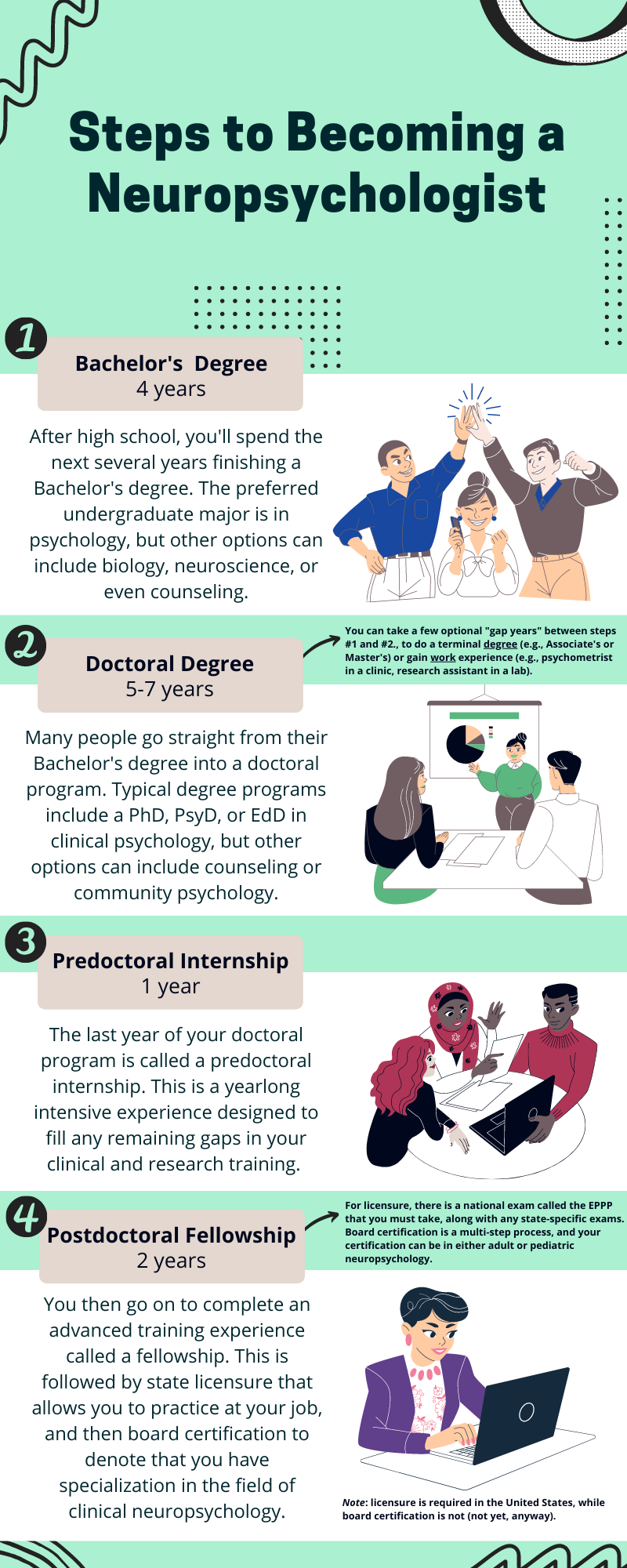How to Fully Prepare to Become a Neuropsychologist in 2025
Becoming a **neuropsychologist** in 2025 requires thorough preparation, a deep understanding of both psychology and neuroscience, and the completion of specific educational and professional steps. As the field of neuropsychology evolves, so too do the requirements for aspiring professionals. Understanding these essential steps can help you navigate your future career successfully. In this article, we will explore the educational requirements, training opportunities, and skills necessary to excel in neuropsychology.
Understanding Neuropsychology
**Neuropsychology** blends the study of the brain with psychological practices. It focuses on how brain functions relate to behaviors and cognitive processes. This field is vital for assessing and treating individuals with cognitive disorders, brain injuries, and other neurological issues. As a future neuropsychologist, you will need a solid grasp of cognitive psychology and the ways in which different cognitive domains, such as attention, memory, and reasoning, are affected by brain functioning. Dive into relevant psychology courses during your degree in psychology, focusing on cognitive development, neuroanatomy, and the interplay between brain and behavior.
The Foundations of Neuropsychology
At its core, neuropsychology is about understanding how various neurological paths affect cognitive processes and behavior. Your journey begins with obtaining a degree in psychology, followed by specialized insights into how the brain processes different types of information. Courses in clinical psychology, cognitive psychology, and neuroanatomy will provide a robust foundation. Aspiring neuropsychologists should also familiarize themselves with research methods and the ethical implications within the field of psychology to ensure they understand the importance of conducting responsible and effective patient evaluations.
Relevant Areas of Study
To effectively prepare for a career as a neuropsychologist, you should concentrate on areas such as cognitive testing and **neuropsychological assessments**. Engaging in undergraduate research projects related to cognitive impairment, emotional regulation, and neurodevelopmental disorders will strengthen your understanding and application of **psychological research**. Furthermore, exploring multiple disciplines such as health psychology and clinical psychology can provide a well-rounded view, as many neuropsychologists work collaboratively in interdisciplinary teams.
Educational Pathways and Training
The path to becoming a neuropsychologist is intricate and involves distinct educational milestones. Most neuropsychologists start by earning a bachelor’s degree in psychology or a closely related field. This step is crucial as it establishes the foundational knowledge and skills necessary for future studies. Following the undergraduate journey, students must enroll in a graduate program where they can pursue specialized training, including internships and mentorship opportunities that are integral to the vocation. Doctoral programs focused on psychology, whether through a PhD or PsyD path, are essential for advanced knowledge in clinical practice and patient evaluation.
<h3 Pursuing a Doctoral Degree and Internship
After obtaining your undergraduate degree, enrolling in a doctoral program in psychology is fundamental. Programs that emphasize clinical neuropsychology will focus on cognitive assessment and treatment strategies unique to neurological conditions. During your studies, it’s important to seek out internship opportunities that offer real-world clinical experience and the chance to apply theories learned in class. Engaging in practical placements will help you develop assessment tools, enhance client communication, and refine your psychological skills in preparation for your licensure exams.
Certification and Licensure Requirements
Upon completing your doctoral degree and required internship hours, aspiring neuropsychologists must complete and pass certification exams. Each state has unique licensure requirements for professionals in **mental health services**, so it’s crucial to familiarize yourself with the specific criteria in your jurisdiction. Obtaining certification through respected boards not only validates your skills but ensures you’re up-to-date with best practices in neuropsychological assessment and **evidence-based practice**. Continuous education and attending workshops will further fortify your competence and credibility in the field.
Soft Skills and Specialization Areas
While technical skills and educational qualifications form the backbone of your journey towards becoming a neuropsychologist, developing strong soft skills is essential for success. Resilience, empathy, and excellent communication skills are vital for engaging effectively with clients and their families. Building these skills can improve your therapeutic relationship and enhance patient care. Focusing on areas like health promotion, emotional intelligence, and cultural competence will set you apart and allow for a more humane approach to patient intervention.
Practical Experience Through Networking and Mentorship
Networking with existing professionals and seeking out mentors during your educational journey are invaluable resources. Engaging with **professional associations** dedicated to neuropsychology can provide insights into the latest research and industry standards. Furthermore, job shadowing experienced neuropsychologists or participating in collaborative projects will enhance your practical skills and reinforce your understanding of therapeutic interventions and neurocognitive functioning.
Continuing Education and Professional Development
Once you are licensed, your learning doesn’t stop there. Engaging in **continuing education** and pursuing advanced certifications in specialized fields of neuropsychology, such as neurorehabilitation or health psychology, can enhance your skill set and broaden your career opportunities. Attending seminars, workshops, and developing projects aimed at publishing your work can help integrate fresh perspectives into your practice and keep your knowledge current.
Key Takeaways
- Obtain an undergraduate degree in psychology with a focus on cognitive and clinical psychology.
- Pursue a doctoral program in psychology specializing in neuropsychology.
- Engage in internships and clinical placements to apply knowledge directly.
- Obtain certification and licensure based on state-specific requirements.
- Develop soft skills and engage in continuous professional development through workshops and networking.
FAQ
1. What undergraduate degree is needed to become a neuropsychologist?
You typically need a **degree in psychology** or a related field, where foundational knowledge about cognitive psychology and brain functions is established. This is essential before entering a doctoral program focusing on neuropsychology.
2. Are internships essential during training?
Yes, internships provide critical hands-on experience where future neuropsychologists learn to evaluate patients effectively using **neuropsychological tests**. They are a requirement in most graduate programs.
3. What does certification in neuropsychology entail?
Certification often involves passing comprehensive exams after completing your educational and internship requirements. It’s an important step for licensure that verifies your expertise in **psychological assessment** and treatment methods.
4. How important are soft skills in neuropsychology?
Soft skills such as communication, empathy, and resilience are vital since they directly correlate with patient care and treatment outcomes. Cultivating these skills alongside technical abilities is crucial for success.
5. What are the main areas of focus for neuropsychologists?
Neuropsychologists typically focus on evaluating cognitive disorders, conducting psychological assessments, and developing rehabilitation strategies tailored to individuals experiencing brain injuries or psychiatric conditions.
6. How can recent graduates find neuropsychology job opportunities?
Utilizing online job boards, networking through professional associations, and reaching out to mentors can significantly enhance your chances of finding career opportunities in neuropsychology.
7. What are some important trends in the field of neuropsychology?
Current trends focus on advancements in **neuroimaging**, integration of technology in assessments, and evidence-based practices that aim to deliver data-driven therapeutic interventions for cognitive-behavioral therapies.


